Premium Only Content
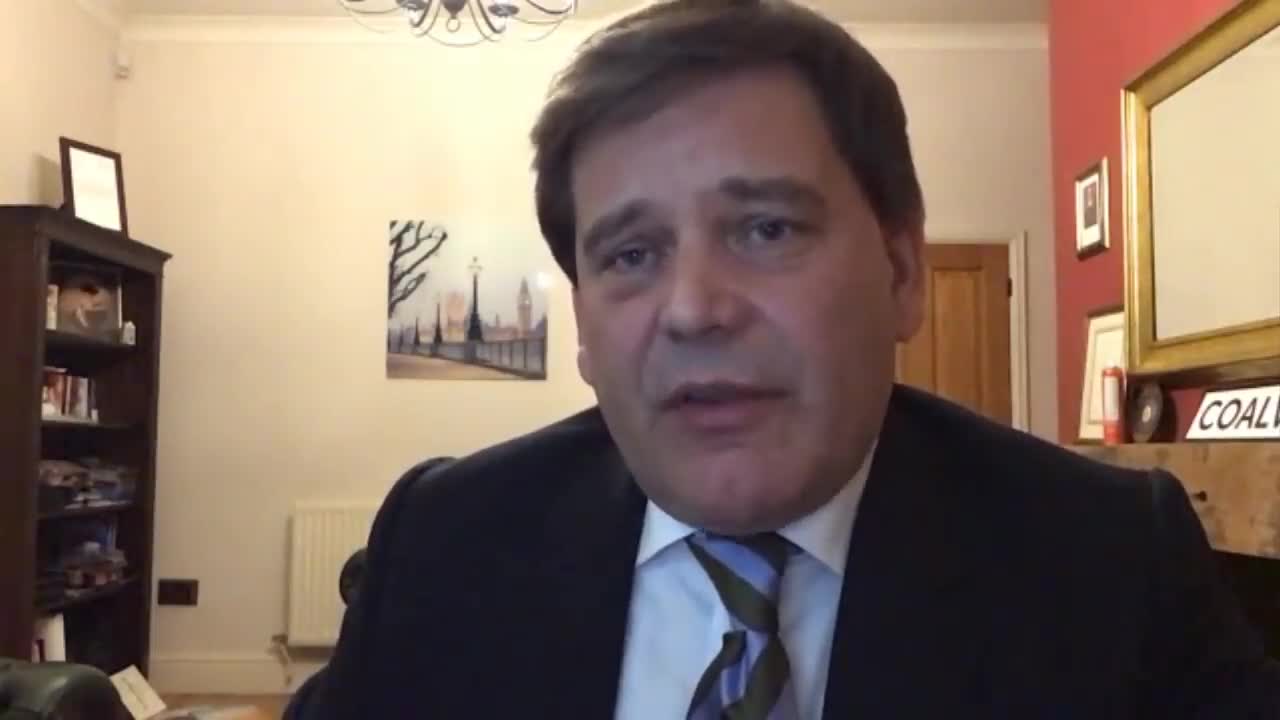
ELITE HYPOCRISY #3: UK Chief Adviser, Dominic Cummings, Breaks His Own Lockdown Rules
https://www.bbc.com/news/uk-politics-52784290
UK PM Boris Johnson's most senior adviser, Dominic Cummings, has said he acted reasonably and legally after driving across England during lockdown, while he had coronavirus symptoms. But what exactly did he do and when? Subscribe to our channel here: https://goo.gl/31Q53F
Dominic Cummings drove 260 miles (418km) from London to Durham, and took a 60-mile round trip from Durham to a nearby town on his wife's birthday - a trip he says he made to test whether his eyesight was good enough to drive.
Mr Cummings is facing calls to resign, both from opposition politicians and members of the governing Conservative Party, whose leader, Boris Johnson, he advises.
In a highly unusual move for an adviser, Mr Cummings gave a press conference, which was intended to clear up any details of his whereabouts, but many questions remain.
Mr Cummings has said he believed he acted "reasonably" and within the law. He has so far been backed by Mr Johnson and other senior government ministers.
But his actions have raised the question - did one of the government's most senior employees ignore the rules he had helped set for millions of people across the nation?
Policy Editor Lewis Goodall takes a look at the holes in the account.
In the studio, Emily Maitis is joined by the SNP’s Westminster leader Ian Blackford and Conservative MPs Craig Whittaker and Andrew Bridgen.
WATCH MORE OF OUR CORONAVIRUS COVERAGE: https://bbc.in/2Vxe5HQ
#Newsnight #Coronavirus #BBCNews
Newsnight is the BBC's flagship news and current affairs TV programme - with analysis, debate, exclusives, and robust interviews.
Website: https://www.bbc.co.uk/newsnight
Twitter: https://twitter.com/BBCNewsnight
Facebook: https://www.facebook.com/bbcnewsnight
...
23 March: The prime minister tells the UK public they "must stay at home". People are warned not to meet friends or family members they do not live with. Those with symptoms had already been told to self-isolate.
27 March: Mr Cummings is seen leaving 10 Downing Street. "I suddenly got a call from my wife who was looking after our four-year-old child. She told me she suddenly felt badly ill." He went home, but after a couple of hours his wife felt better and he returned to work.
Guidance: If Mr Cummings believed his wife may have had coronavirus, the guidance was that "all other household members who remain well must stay at home and not leave the house for 14 days".
What are social distancing and self-isolation rules?
Evening: Mr Cummings went on to explain - "That evening I returned home and discussed the situation with my wife. She was ill. She might have Covid although she did not have a cough or a fever." Mr Cummings said many people he worked closely with, including the PM, had had symptoms or were absent with symptoms. He said: "I thought there was a distinct probability that I had already caught the disease."
Later: Mr Cummings drove up to Durham with his family, arriving "at roughly midnight". "I was worried that if my wife and I were both seriously ill, possibly hospitalised, there was nobody in London we could reasonably ask to look after our child and expose themselves to Covid.
"My wife had felt on the edge of being able to look after him safely a few hours earlier." Mr Cummings did not say that at the point the family drove north his wife was unable to look after their child.
Guidance: Stay at home is the simple government advice for households where one or more members have coronavirus symptoms. However, the main advice page says it is not always straightforward when children are involved. It says: "If you have children, keep following this advice to the best of your ability, however, we are aware that not all these measures will be possible."
Other government advice did not contain this caveat, such as the leaflet drawn up at the end of March to be sent to every house. Nor did the government page on essential travel which said: "Essential travel does not include visits to second homes... whether for isolation purposes or holidays. People must remain in their primary residence."
Durham Police said on 28 May that it did not consider that going to Durham had been an offence. The police statement stressed that it was concerned with whether Mr Cummings had breached the regulations, not the general government guidance to "stay at home".
What are the lockdown rules for caring for children?
Coronavirus: Can it affect eyesight?
Kuenssberg: Questions remain
28 March: Mr Cummings says he woke up "in pain and clearly had Covid symptoms, including a bad headache and a serious fever".
30 March: A No 10 source confirmed Mr Cummings had developed symptoms of the virus and was self-isolating "at home".
1 April: Durham Constabulary speak to the father of Dominic Cummings who confirms that his son and family were present at the property.
2 April: During the night, Mr Cummings' four-year-old son "threw up and had a bad fever". Following medical advice, an ambulance took the child to hospital. He was accompanied by Mr Cummings' wife. Mr Cummings "could barely stand up".
3 April: After being taken to hospital, Mr Cummings' son woke up the next day having recovered. He was tested for coronavirus and his mother, who was with him at the hospital, was told "they should return home" (the test result arrived days later and was negative). According to Mr Cummings, there were no taxis so he "drove to the hospital, picked him up and returned home". He said he "did not leave the car or have any contact with anybody on this short trip". But according to his wife's later article in the Spectator Mr Cummings had a high fever and muscle spasms in his legs throughout this period.
Guidance: People with symptoms that may be caused by coronavirus and who do not require hospital treatment are told they "must remain at home until they are well".
In March and April, the North East Ambulance Service (NEAS) policy was to offer transport for patients leaving hospital with suspected Covid-19 but without a confirmed test result. A spokesperson for Durham and Darlington NHS Foundation Trust, which runs nine hospitals and two accident and emergency units in the area, told the BBC they "could arrange ambulance transport via North East Ambulance Service" in early April.
6 April: At some point in the week leading up to this date, Mr Cummings discussed his decision to travel to Durham with the prime minister. "When we were both sick and in bed," he said, "I mentioned to him what I had done. Unsurprisingly given the condition we were in, neither of us remember the conversation in any detail."
4-11 April: Mr Cummings said "after I started to recover, one day in the second week, I tried to walk outside the house". He confirmed he, his wife and his son went for a walk into woods owned by his father and it was at this point he was seen by passers-by but his family "had no interaction with them". The exact date is not clear but his second week isolating in Durham would have between these two dates.
Guidance: Advice concerning outdoor exercise changed during the second week in April, when Mr Cummings and his family walked in the woods. Until 9 April, people with coronavirus symptoms and their household were told they could exercise outdoors. On that date, the PHE advice changed to say "any exercise should be taken within your home". A separate NHS guidance page said people isolating could use their gardens.
11 April: Believing he had recovered by this date, albeit "feeling weak and exhausted", Mr Cummings said he "sought expert medical advice". "I explained our family's symptoms and all the timings and asked if it was safe to return to work on Monday or Tuesday, seek childcare and so on. I was told that it was safe and I could return to work."
12 April: Mr Cummings drives to Barnard Castle, about 25 miles from his parents' home in Durham, with his wife and child. He explained this episode as needing to test his driving was fine before making the long drive back to London. He said he'd been having problems with his vision.
Guidance: On 28 May Durham Police said the drive to Barnard Castle "might have been a minor breach of the regulations that would have warranted police intervention". It added that the offence was minor because there did not appear to have been any breach of the social distancing rules.
The statement said that if an officer had stopped Mr Cummings on the way to Barnard Castle, they would advised him to return to Durham. The constabulary said it would not be taking retrospective action against him because it would not do so against any other member of the public.
There was no mention in the statement of whether Mr Cummings was fit to drive given his concerns about his eyesight.
The 1988 Road Traffic Act says: "If a person drives a motor vehicle on a road while his eyesight is such (whether through a defect which cannot be, or one which is not for the time being, sufficiently corrected) that he cannot comply with any requirement as to eyesight prescribed under this Part of this Act for the purposes of tests of competence to drive, he is guilty of an offence." The Highway Code says: "You MUST report to the Driver and Vehicle Licensing Agency (DVLA) any health condition likely to affect your driving."
Sir Peter Fahy, former chief constable of Manchester Police, said the drive to Barnard Castle was potentially a criminal offence. "It's not the way to test your eyesight and put, potentially, other people in danger." On Twitter, John Apter, chair of the Police Federation for England and Wales, said: "If you're feeling unwell and your eyesight may be impaired do not drive your vehicle to test your ability to drive. It's not a wise move."
Michael Gove also referred to a reason that Mr Cummings did not during his press conference. "It was part of the National Police Chiefs Council (NPCC) guidance that you could drive at that time in order to take exercise as well."
In the NPCC guidance referred to by Mr Gove - which was publicised in mid-April - "driving for a prolonged period with only brief exercise" was deemed not likely to be reasonable. Mr Cummings and his family walked a few yards and sat by a riverbank for a few minutes.
13 April: Mr Cummings and his family travel back to London.
14 April: Mr Cummings is seen in Downing Street for the first time since 27 March. In his recent press conference Mr Cummings said he had written "about the possible threat from coronaviruses last year" but it transpired an old blog was edited on the evening of 14 April to add a short section on this.
19 April: Five days after being in London, The Observer and Mirror report that Mr Cummings is seen again in Durham by an unnamed witness. Mr Cummings says he did not return to Durham and that evidence on his phone proves this.
Mr Cummings insisted he did not break the law, saying: "I believe that in all the circumstances I behaved reasonably and legally, balancing the safety of my family and the extreme situation in Number 10."
He said "I don't regret what I did" and added that "the rules make clear that if you are dealing with small children that can be exceptional circumstances and the situation I was in was exceptional circumstances".
-
 15:42
15:42
Joey Saladino Show
4 years ago258. Pelosi Breaks her OWN RULES!
2.72K20 -
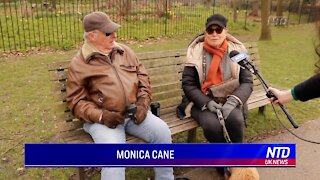 1:39
1:39
NTD News
4 years agoEngland Eases Lockdown Rules
297 -
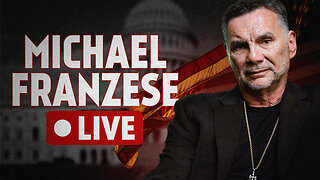 LIVE
LIVE
Michael Franzese
12 hours agoMenendez Brothers Denied Parole – Newsom Holds Their Fate
8,849 watching -
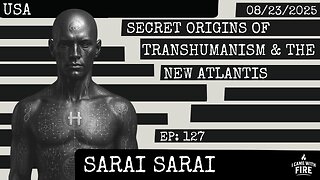 LIVE
LIVE
I_Came_With_Fire_Podcast
11 hours agoSecret Origins of Transhumanism & The New Atlantis
281 watching -
 LIVE
LIVE
GritsGG
1 day ago36 Hour Stream! Most Wins 3420+ 🧠
1,979 watching -
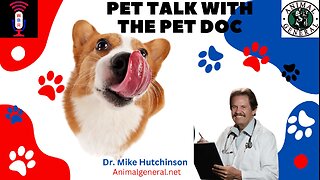 1:12:40
1:12:40
Wendy Bell Radio
7 hours agoPet Talk With The Pet Doc
30.2K24 -
 LIVE
LIVE
FusedAegisTV
12 hours agoStreet Fighter 6 FINALS, CS2 Semifinals | $1,250,000 | Riyadh, Saudi Arabia EWC 2025 !estv
138 watching -
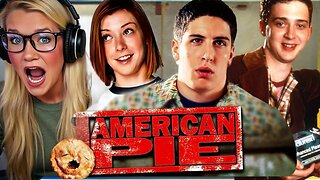 40:42
40:42
SouthernbelleReacts
1 day ago $0.04 earned😂 American Pie (1999) Reaction | Iconic Teen Comedy, High School Chaos & 90s Nostalgia 🥧
13.5K1 -
 LIVE
LIVE
LumpyPotatoX2
2 hours agoBecome a HellDiver Today - #RumbleGaming
119 watching -
 LIVE
LIVE
Midnight In The Mountains
4 hours agoGaming w/ PER·SE·VER·ANCE | Sassy Saturday Fortnite | with the Midnights!
60 watching